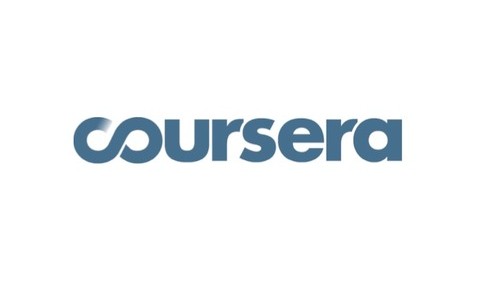Coursera: Education is Massively Multiplayer
Coursera: Education is Massively Multiplayer
It’s hard to find a tech-related press release that doesn’t call itself disruptive, but Coursera’s free and accessible online education actually is. Coursera, and other programs like it, offer classes that are known as Massively Open Online Courses. These classes are open to anyone with an interest and an internet connection. Information on a variety of subjects is presented through video lectures, readings, and discussion groups, with multiple choice quizzes and occasional writing assignments for assessment. Classes are taught by professors from major universities around the world.
Since classes include hundreds and thousands of students, direct interaction with the professor is quite limited. Some instructors interact on the student forums, or organize Google Plus hangouts, but the entire concept of stopping by office hours doesn’t exist. That doesn’t mean professors are remote and unapproachable, just that students gather information from FAQs and forums. Here is Coursera and Duke University professor Dan Ariely on the Massively Open Online Course model:
[vimeo 62474787 w=500 h=281] A Preview to “A Beginner’s Guide to Irrational Behavior” from Advanced Hindsight on Vimeo.
Some Coursera classes offer certificates of completion for folks who participate in all aspects of the class, and pass the final. This is particularly useful for students taking a professional development course, or hoping to transfer the course in other ways, who’ll need an official credential just as much as the actual skills taught. I took a Gameification course, taught by Kevin Werbach from the University of Pennsylvania, for my own professional development. I’ve also taken traditional, in-person classes to advance my work in game design, and being able to to hear the Coursera lectures on my own schedule made it a lot easier to study while working full-time.
(The class will be offered again this summer, and I would thoroughly recommend it for aspiring game designers, especially folks looking to codify reward-feedback and think more critically about gameification. Also, I’d point aspiring designers to Mohseen Lala’s primer on game dev terminology here on Geek.)
There’s often a certificate of completion available through Coursera, but students can also sign up for classes and just enjoy the lectures without doing any of the written assignments. I’ve done this a couple times, and used Coursera’s offerings as my own targeted history channel. Course reading lists, usually with free PDFs or links, can also be a great resource. Coursera’s classes present lifelong, hobbyist learning, in a format for enthusiasts to enjoy. With local libraries reducing hours and cutting programs all around, online lectures like Coursera are essential for armchair historians. I’m a Roman history buff myself, but feel free to read “botanist”, “economist” or your own favorite interest in for “historian”.
Coursera and Traditional College
With college costs in the US reaching such extreme heights, and new grads leaving school with such heavy debts, free college level education has the potential to be very disruptive. Sure, Coursera’s not a prestigious university name on a degree (Yet.), but with the potential for students to study exactly the courses they want or need without sitting through pre-reqs or forced gen ed requirements, it opens a lot of questions about pursuing knowledge and skills versus pursuing a degree.
Recently, some California schools have decided to accept certain Coursera classes for traditional college credit. School administrators hope that accepting Coursera work will reduce the load on oversubscribed intro classes. I did my undergraduate work at a large state school, several years ago, and I still remember the scheduling struggle to get a seat in some of the 100-level requirements. There’s a define design flaw in a system where students arrange their upper level, relevant classes around the only available slots in a required Bio 101 or English Comp class. These intro classes don’t typically offer a lot of direct interaction with professors, so switching to online lectures won’t have a real difference in quality. Let’s not even talk about how great it is to take in a lecture when you’re most sharp and attentive, and play back sections that are confusing or particularly interesting, instead of dragging to an 8 AM (Or 2 PM. Or a three hour block on Tuesdays and Thursdays.) lecture and trying to stay focused.
When students sign up for a Coursera class now, they’re asked to agree to the honor code. This is the usual reminder to do your own work and not be a jerk who ruins it for everybody. (It might be phrased slightly more professionally on the site.)
Students who are hoping to transfer their Coursera classes to a four-year university are asked to pay additional fees, from $35 to $100, for extra security applications to rule out plagiarism. Different add-ons analyze a student’s typing patterns or proctor a final via webcam, to avoid the obvious problems of distance education. Even assuming the highest price point I’ve seen discussed, $100 for a three-credit college course is a steal.
There are real accredited online universities providing real online education and traditional degrees. Coursera’s still a fledgling program, but I hope that pretty soon that seeing good professors offering relevant, engaging courses online will challenge some of our expectations about education.
Have you taken a Coursera or other MOOC class? What did you think?

